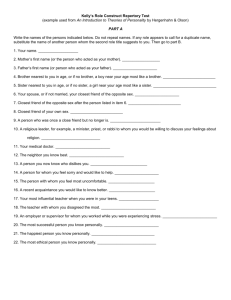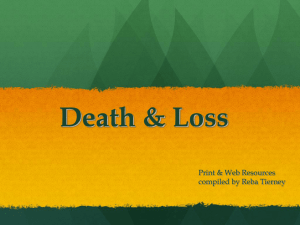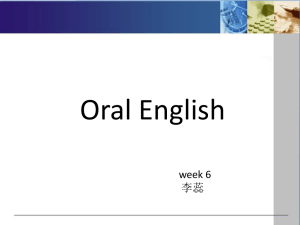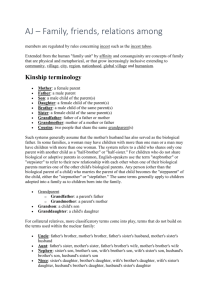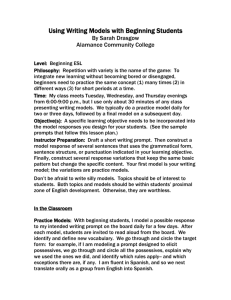Signal Detection Theory Worksheet - AP Psychology
advertisement
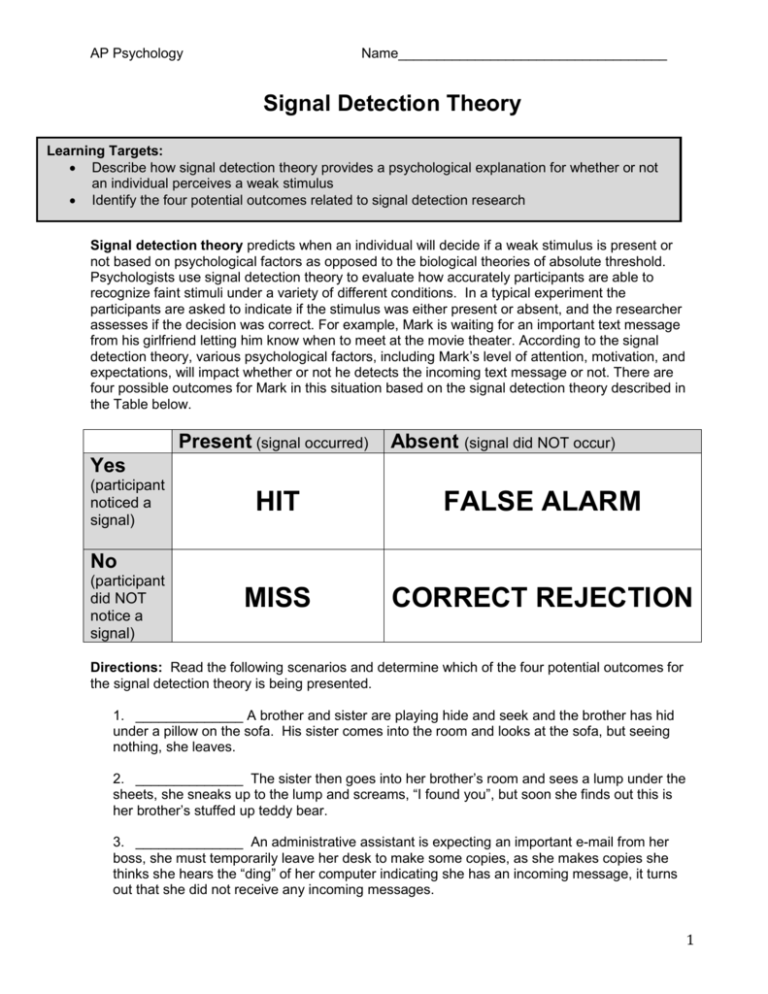
AP Psychology Name___________________________________ Signal Detection Theory Learning Targets: Describe how signal detection theory provides a psychological explanation for whether or not an individual perceives a weak stimulus Identify the four potential outcomes related to signal detection research Signal detection theory predicts when an individual will decide if a weak stimulus is present or not based on psychological factors as opposed to the biological theories of absolute threshold. Psychologists use signal detection theory to evaluate how accurately participants are able to recognize faint stimuli under a variety of different conditions. In a typical experiment the participants are asked to indicate if the stimulus was either present or absent, and the researcher assesses if the decision was correct. For example, Mark is waiting for an important text message from his girlfriend letting him know when to meet at the movie theater. According to the signal detection theory, various psychological factors, including Mark’s level of attention, motivation, and expectations, will impact whether or not he detects the incoming text message or not. There are four possible outcomes for Mark in this situation based on the signal detection theory described in the Table below. Present (signal occurred) Absent (signal did NOT occur) Yes (participant noticed a signal) HIT FALSE ALARM MISS CORRECT REJECTION No (participant did NOT notice a signal) Directions: Read the following scenarios and determine which of the four potential outcomes for the signal detection theory is being presented. 1. ______________ A brother and sister are playing hide and seek and the brother has hid under a pillow on the sofa. His sister comes into the room and looks at the sofa, but seeing nothing, she leaves. 2. ______________ The sister then goes into her brother’s room and sees a lump under the sheets, she sneaks up to the lump and screams, “I found you”, but soon she finds out this is her brother’s stuffed up teddy bear. 3. ______________ An administrative assistant is expecting an important e-mail from her boss, she must temporarily leave her desk to make some copies, as she makes copies she thinks she hears the “ding” of her computer indicating she has an incoming message, it turns out that she did not receive any incoming messages. 1 AP Psychology Name___________________________________ 4. ______________ A man is angry because the neighbor children keep cutting through his yard which is ruining his freshly planted flowers. He is keeping a close watch through his back window when suddenly he sees movement and prepares to shout out the window. He does not do anything because he accurately realizes the movement was caused by a raccoon. 5. ______________ Later that evening he once again sees movement, based on the amount of noise he believes it is one of the neighbor children; he turns on the backyard lights and finds two of them halfway across the lawn. 6. ______________ You are bobbing for apples one Halloween and have just seen the host dump ten new apples into the bucket, which you are using. You go in a come up only with a mouthful of water. 7. ______________ Your friend goes next and instantly come up with an apple and scores a point in the game. 8. ______________ The next person in line retrieves a pear instead of an apple which does not count for a point in the game. 9. ______________ The final contestant initially feels a pear but releases it and continues to look for an apple. 10. You are trying to spot the North Star on a long drive, using the signal detection theory, describe the four potential outcomes as you search for the star in the sky. Be specific and include all of the aspects of each outcome. Present Absent Yes No 2 AP Psychology Name___________________________________ 3



